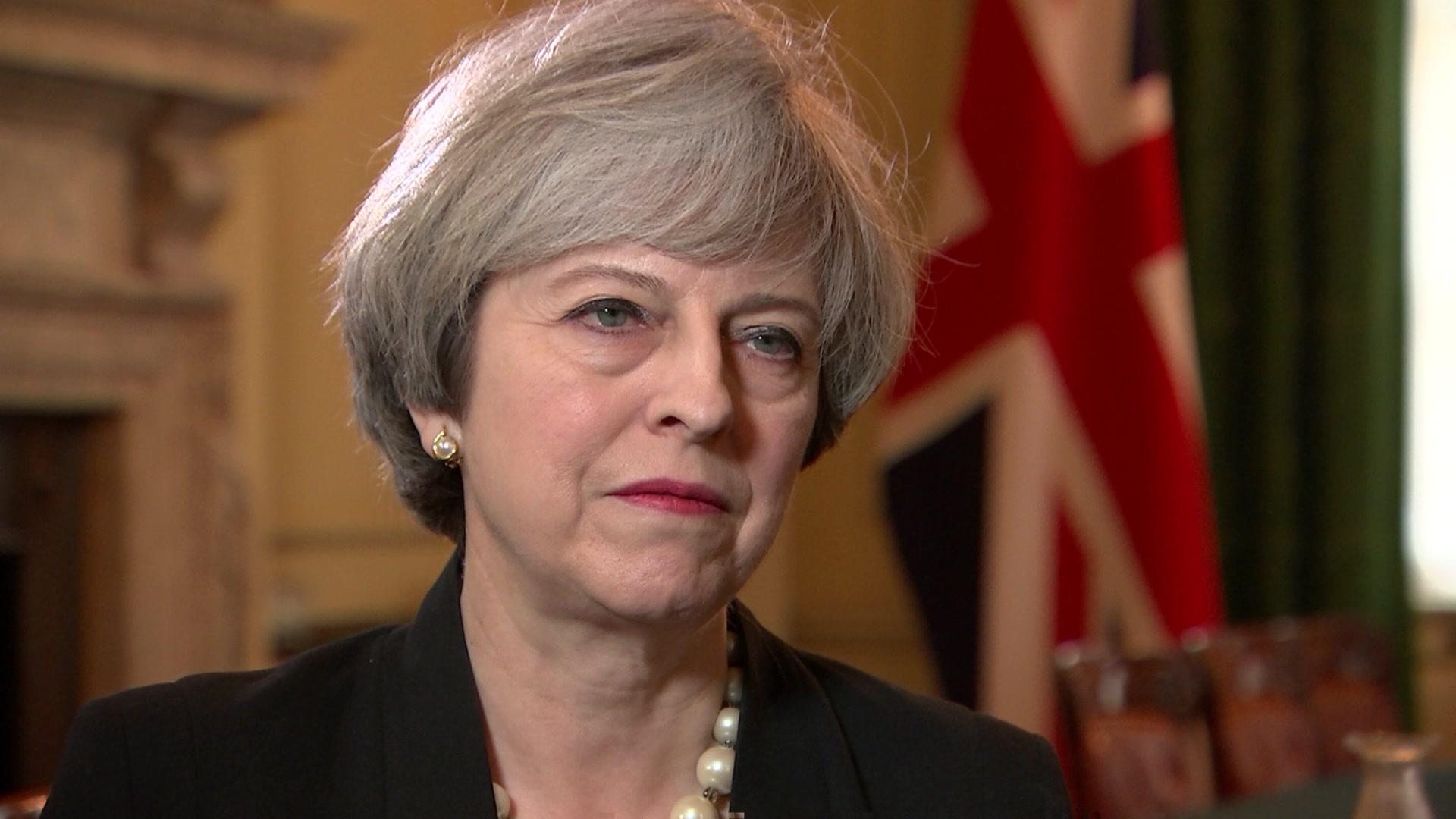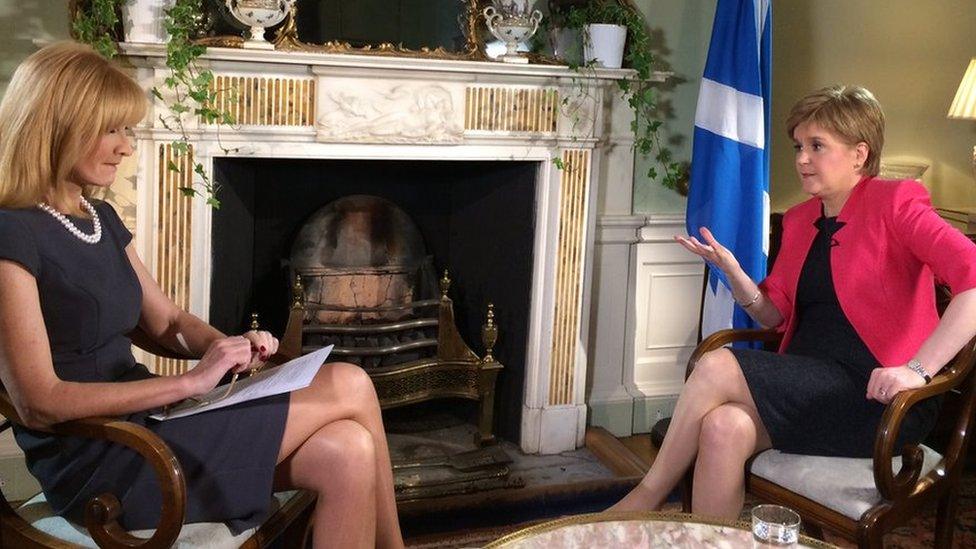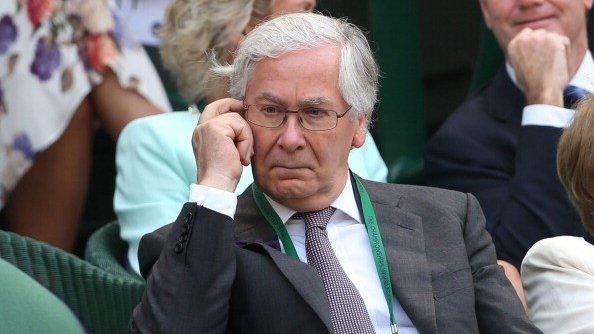Lord King: Scotland 'could be independent'
- Published
"I don't think there are any major problems in terms of currency" - Lord Mervyn King
Scotland "could be an independent country" but would risk a hit to its public finances, the ex-governor of the Bank of England has said.
Lord King told BBC Newsnight that while questions had been raised over which currency an independent Scotland would use, he did not see "major problems".
But he said it could be a challenge to borrow on the international markets.
On Brexit, he said his "biggest worry" was "obsessed" politicians ignoring the trade deficit and NHS funding.
Theresa May has said it is not the time for a Scottish independence referendum.
But Scotland's First Minister Nicola Sturgeon said she remained "determined" to have an independence referendum on her timescale.
Lord King, who headed the Bank of England between 2003 and 2013, said there are plenty of small countries the same size as Scotland, and it "certainly" could be independent.
"It has... the people, it has a capital city, a history and culture, it could be an independent country. The question is, does it want to be given the consequences of it?" he said.
"And if the oil price remains low and if they lose the money which is transferred from the rest of the UK to Scotland, then they would have to make that up in their own budget, but that's a consequence of deciding to be financially independent, you end up paying for yourself.
"And it would be a challenge to borrow on the international market if Scotland decided to run a large budget deficit. I think that would be expensive, the interest rate would go up."
Ahead of the 2014 referendum, ratings agency Fitch warned that plans for an independent Scotland to continue use of the pound without shared fiscal and banking union with the UK could risk "high volatility and market turbulence".
Lord King said: "I myself don't think there are any major problems in terms of currency, that was the thing project fear focussed on last time, but there is an issue about public finances."
Pensions concerns
He also said he had concerns about a range of issues facing the UK in future.
"My biggest worry about economic policy in the next few years is that all the politicians seem obsessed with Brexit.
"And actually, the biggest problems we face now are not Brexit, it's about how we can reduce the trade deficit, how we're going to save enough as a nation to pay for our pensions... how we're going to save enough to pay for care for the elderly... how we are going to finance the NHS."
He added that if politicians only focused on Brexit over the next two or three years, "then those big questions will not receive the attention which they deserve".
On the implications for Northern Ireland's border with the Republic of Ireland post-Brexit, Lord King said it was in "everyone's interests to have an imaginative discussion about where we should go".
He said there may be a "way of shifting the tax and tariff border, from the land frontier to the sea frontier while not disturbing the political arrangements".
And he added: "There's no reason why the rate of corporation tax in Northern Ireland has to be the same as in the rest of the UK, once we have the freedom to do that."
You can watch Evan Davis's full interview with Lord Mervyn King here, external
- Published16 March 2017

- Published16 March 2017

- Published28 February 2016
